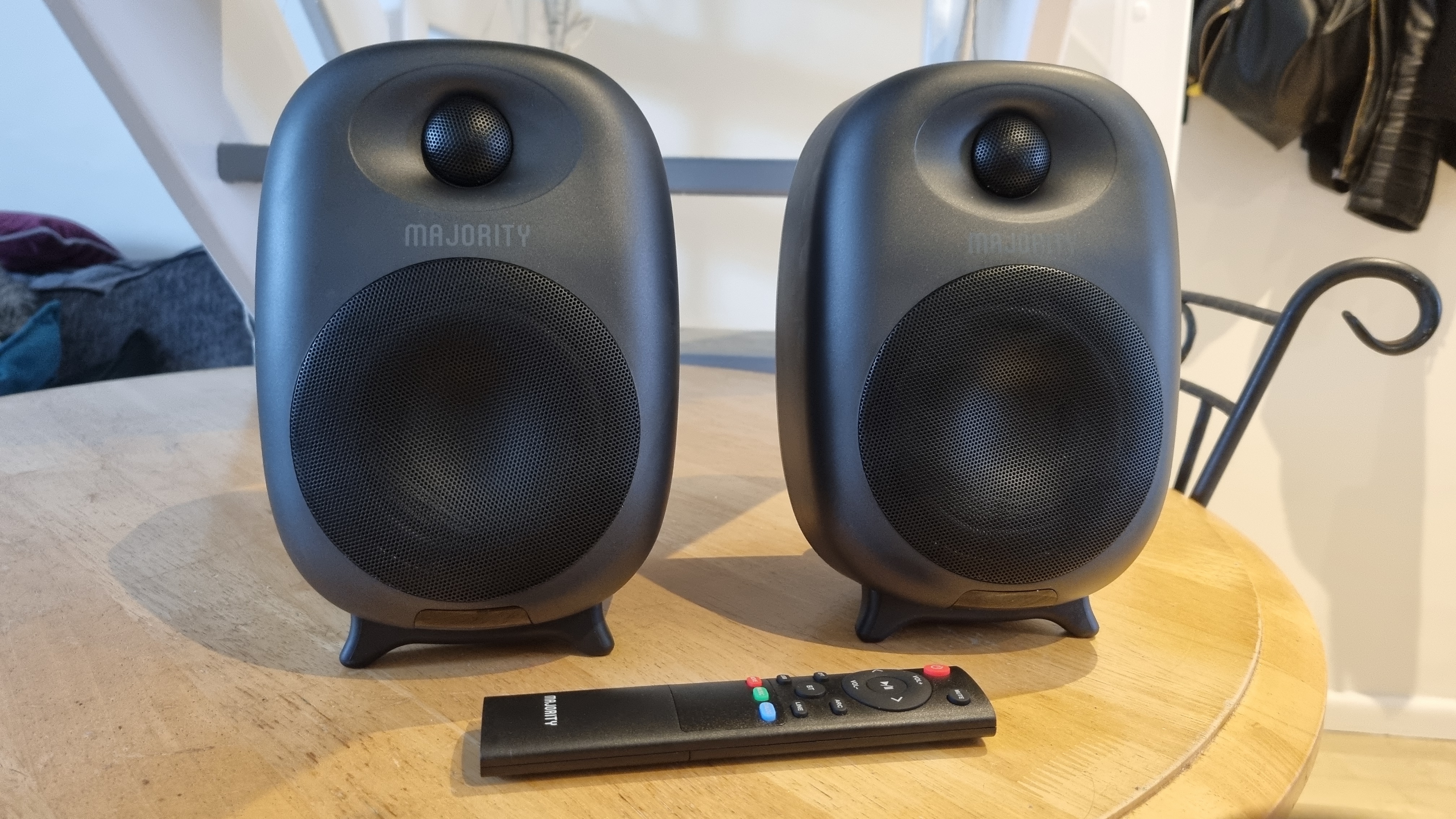Our Verdict
These chunky units deliver big, bold sound without breaking the bank, and while they could do with a little refinement in the EQ settings, they're seriously impressive for the price.
For
- Punchy and well-rounded sound
- Remote and Bluetooth connection options
- Surprisingly powerful
Against
- A bit too large for some desk setups
- Cables are short
- Could do with better balanced EQ settings
PC Gamer's got your back
Buying speakers can sometimes feel like a bit of a lottery, especially if you're trawling the listings looking for something that might suit your needs for less. There are plenty of options in the sub $100/£100 range, but many from brands you've likely never heard of, and that can cause a sceptical eyebrow to raise.
I know this because I had a good look through the speaker listings myself recently. While our best PC speakers guide has plenty of great options for a PC sound setup, I was curious as to whether any of the budget-friendly and perhaps lesser known options on the market might be able to compete.
A particular set caught my eye, mainly due to the number of positive reviews. The Majority D80 Active Bluetooth speakers have been around for a few months now, and on occasion I've looked at them quizzically. Majority is a UK brand that was founded in 2012, and has since released an array of soundbars, home cinema setups and all sorts of other audio equipment for surprisingly reasonable prices.
These units are on sale at Amazon for £100 in the UK, and currently aren't available in the US, which means our stateside friends would have to ship internationally via Amazon's UK site to buy a pair. A quick bit of conversion works that out to around $150 including shipping at the current exchange rate. Regardless, that figure still puts them towards the cheaper end of the market for active powered bookshelf speakers, especially as they're rated at 80W RMS, which is much more powerful than most.
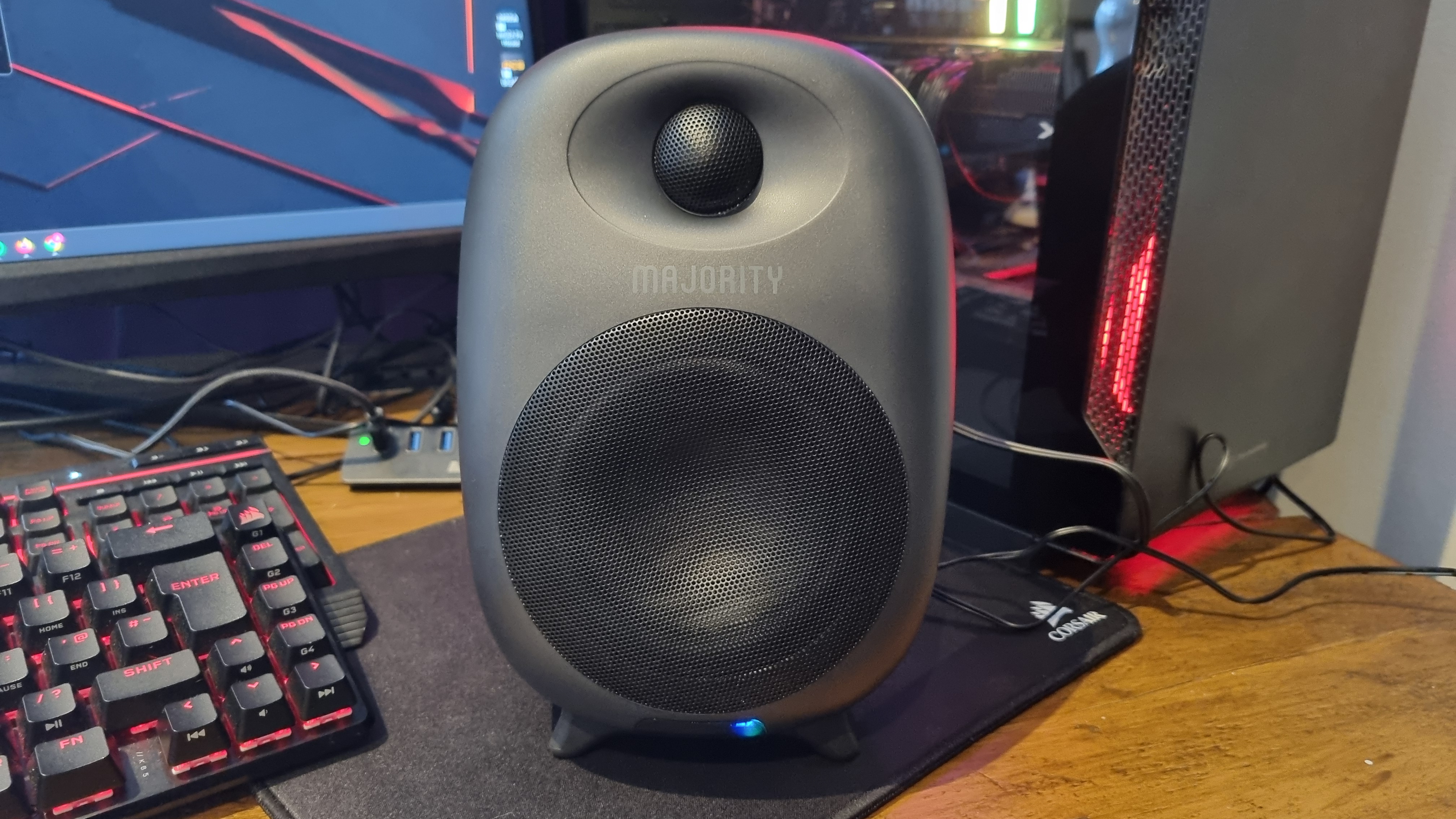
Connectivity: RCA to 3.5mm, Bluetooth, Optical, HDMI ARC
Speakers: 2 x 4-inch drivers with 2 x 1-inch silk dome tweeters
Weight: 2.45 kg
Frequency response: 20Hz – 20,000Hz
Price: £100
Which begs the question: Can they really deliver high-quality and high-powered audio, Bluetooth connectivity and more for that kind of money?
Pulling them from their protective foam, there's certainly not much to tell you that they're relatively cheap. These are sizeable and substantial units, especially if you're planning on using them as desktop speakers, and for some are likely too large.
Still, I found I could squeeze them into my somewhat cramped setup with a bit of rearranging, and was pleased to find that they actually look a little better than they do in the product photos. There's a reassuring weight to each speaker, and the matte finish feels pleasing to the touch.
Connections and controls are found on the rear of the right speaker unit, including RCA connectors, an optical input, a USB Type-A port and an HDMI connector for HDMI ARC connectivity. A traditional RCA to 3.5 mm jack cable is provided for hooking up to your PC sound outputs or a TV output connection, along with a 3.5 mm jack to jack cable for linking the two speakers together and a wall plug power adaptor. While a USB port is provided, it's for listening to audio files through a flash drive rather than for PC connectivity.
One thing to note is the length of the provided cables. While they're a reasonable size for a PC desktop setup, the power cable in particular is quite short, limiting where you could potentially place them if you wanted to wall mount the units or space them far apart for a home cinema setup.
Also on the back are three dials, for volume, bass and treble adjustments. Alongside them are three buttons for power, connectivity and EQ switching. While the sound adjustment dials are set and forget options, you won't have to reach behind the speakers for much else, as a handy remote is also included.
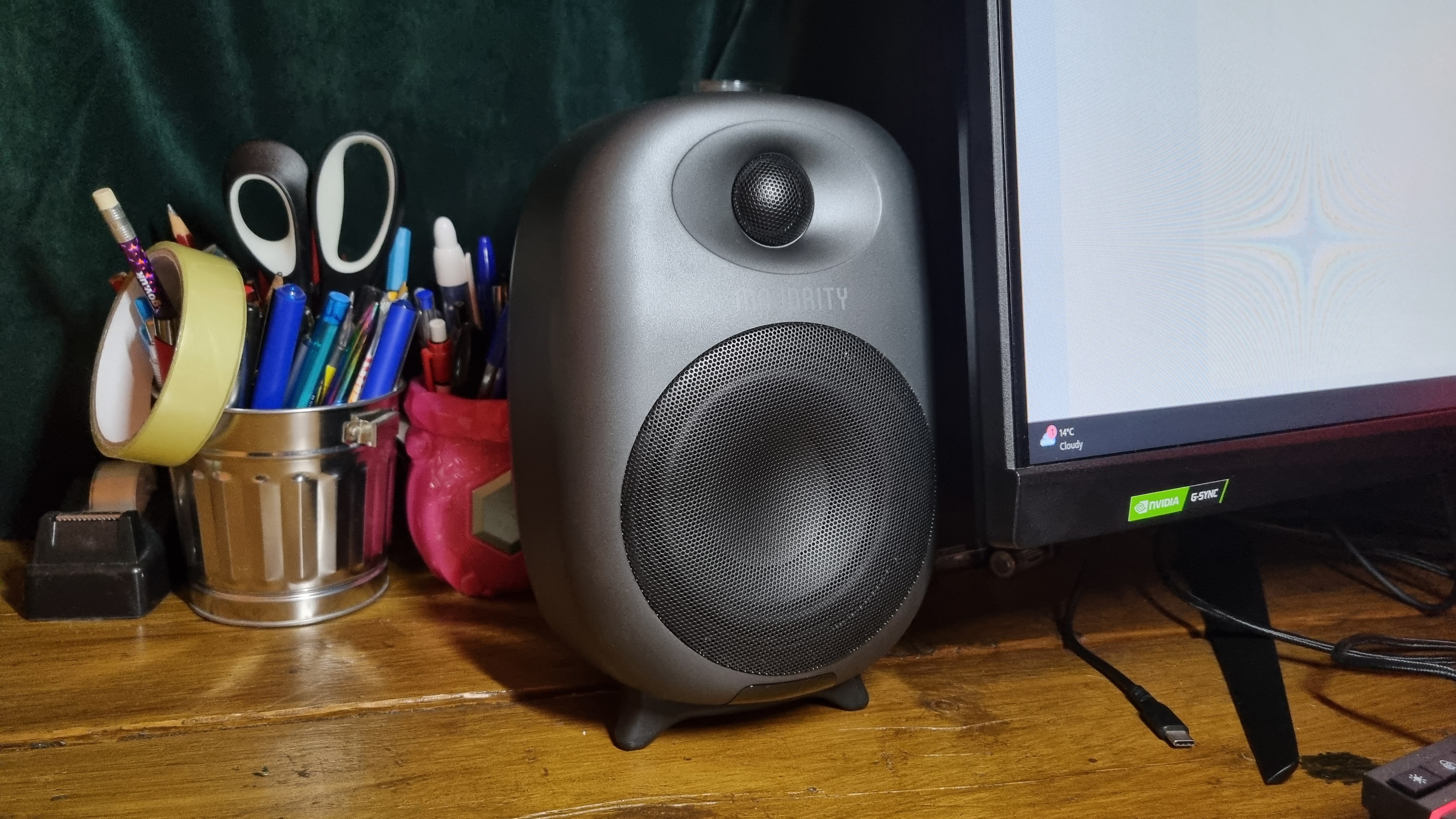
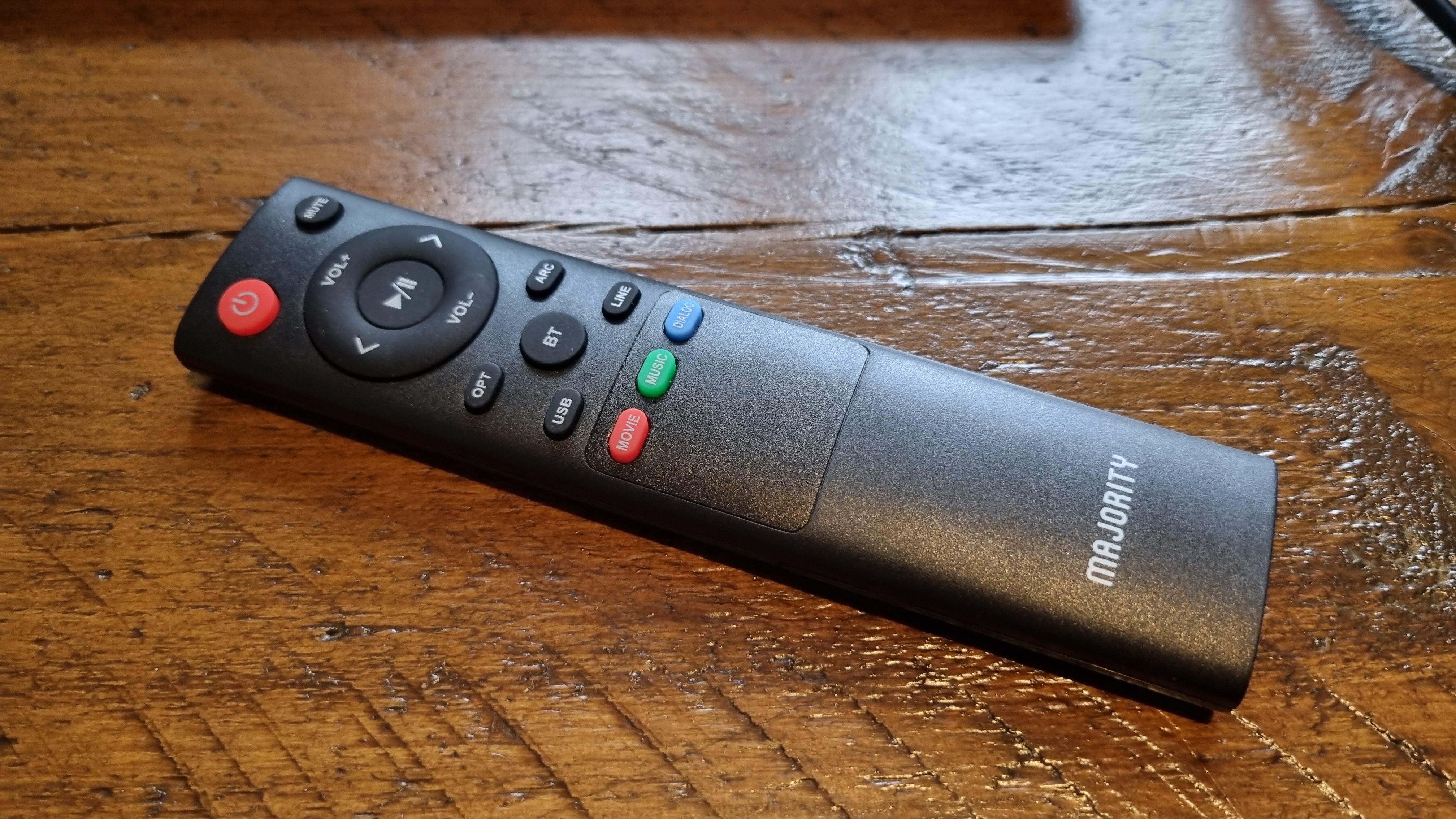
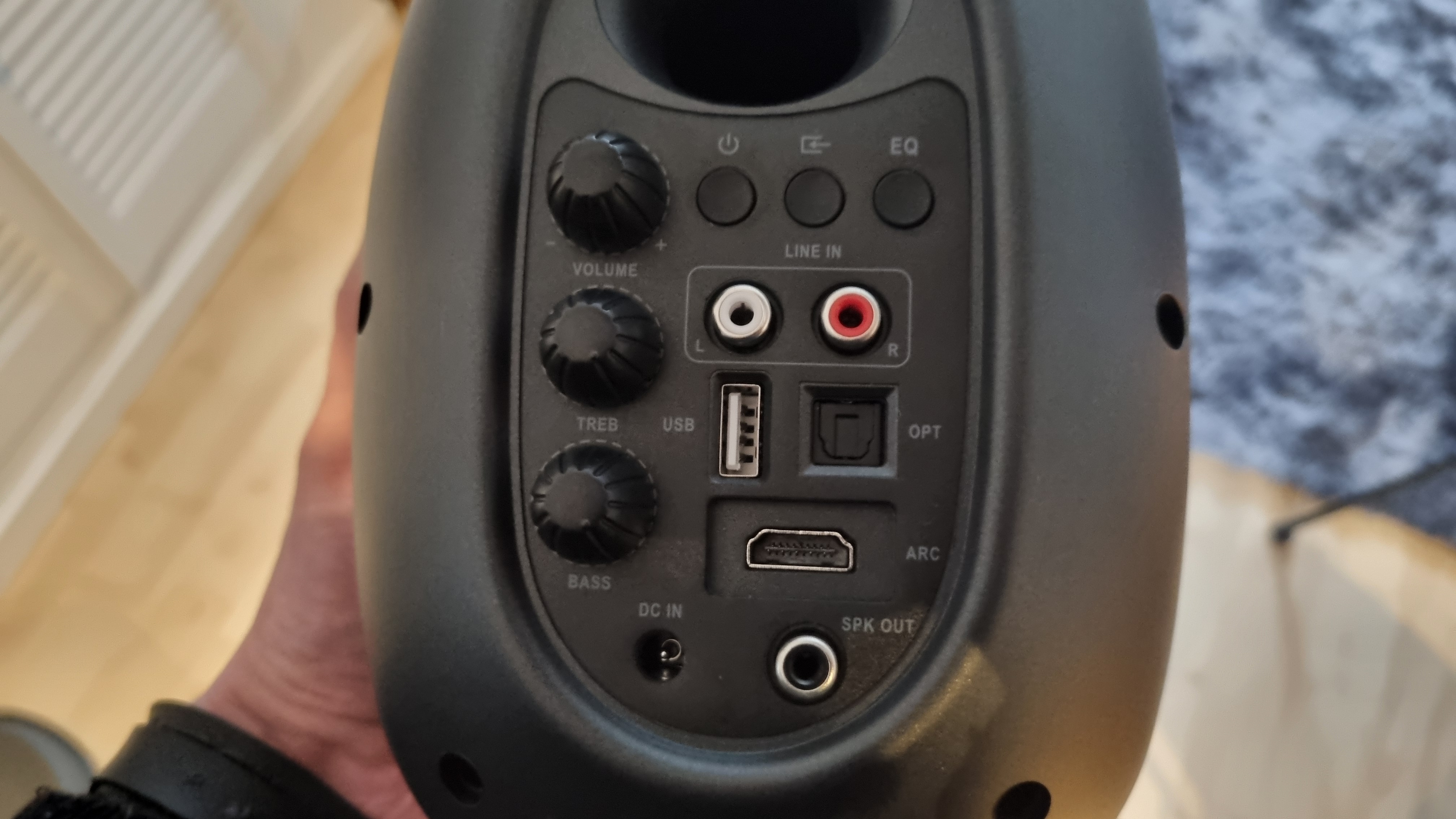
It's a slim and well-built model that shouldn't look out of place next to your other remote controls, and allows you to adjust playback, connectivity, volume and preset EQ settings from a distance, although I did find it a bit directional. It's got a fairly long range, but you'll want to be aiming it at the right speaker unit itself for best pickup.
So, to sound then. Cranking up the dials and connecting the units to my PC by the RCA to 3.5 mm connection, I went to a mainstay in my sound testing arsenal, Tool's "The Pot", a chunky, crunchy recording with plenty of range and some seriously good production. This is a song that can give some lesser speakers issues, and allow better models to shine, so I pushed the volume and braced myself.
Immediately I was impressed. The sound was punchy and rounded, with a good amount of detail thanks to some silk dome tweeters that kept the shimmering high cymbals and Maynard James Keenan's soaring vocals present in the mix, while the 4-inch main drivers delivered weighty slabs of thundering bass and chunky guitar riffs that sounded pleasingly guttural and head-bangingly powerful in equal measure.
Annoying your neighbours is one thing, but if you really push the D80s hard I think you're more likely to receive a visit from your local constabulary.
However, this was on the "Movie" EQ setting. There are three to choose from here, Movie, Music and Dialog, and to my ears the first was the best by far.
The music setting tended to overly limit the bass response in favour of more upper-mids and treble, which while pleasant did feel a little underwhelming compared to what these speakers are capable of, whereas the dialog setting is much more for TV usage, although it does work well for picking out vocals over a bombastic soundtrack.
They're all useable, and none sounds bad per se, but "Movie" provided such a powerful, pleasingly "scooped" EQ that I tended to keep it in that mode for most uses. I would suggest that the Music setting could do with some tweaks, or perhaps to add some options in between, but it was Movie mode that really allowed those rumbly drivers to shine.
And rumble, these speakers really can. My desk is on the far side of my relatively long front room, while my kitchen is on the other side of the house. However, with a little bit of volume I could still feel the weighty punch when making a cup of coffee, and my partner became concerned about what we might be inflicting upon the house next door.
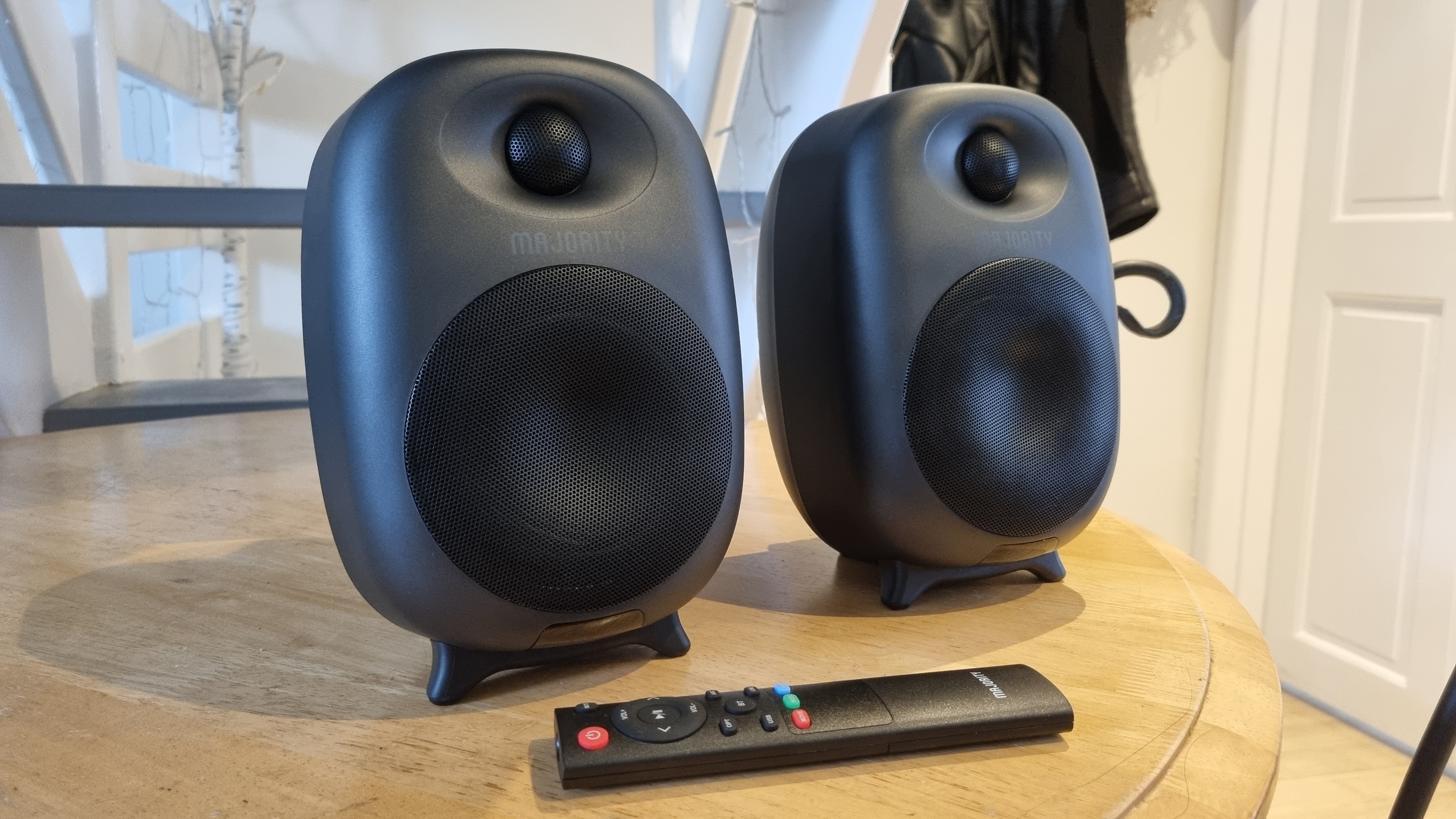
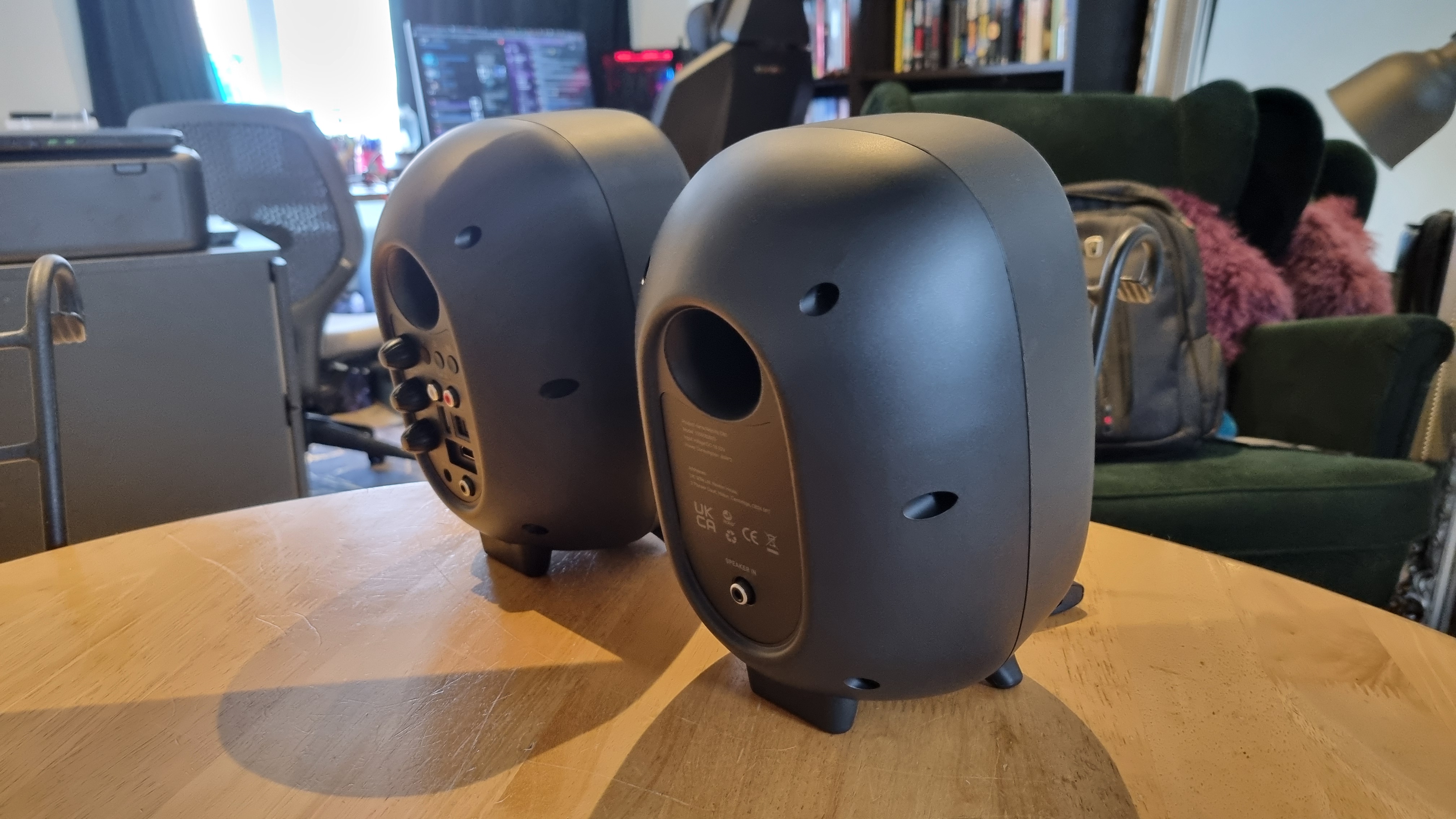
What's really impressive is that the bass and lower mid-response isn't flabby either, as some cheaper speakers can lose control over the low end. These are responsive, chest-thumping and tight in a way that reminds me of much more expensive units, without needing to be cranked to the guns to get the best out of them.
And that's just as well, given the volume they're capable of. Annoying your neighbours is one thing, but if you really push the D80 hard I think you're more likely to receive a visit from your local constabulary. Turn them down to lower volume levels though, and that chunky quality backs off nicely for a bit of casual YouTube watching.
Let's be real for a moment: If you're a total bass-head, you're still going to want a 2.1 setup or similar like the Logitech G560 to really shake the room, as there's only so much two speakers can do when it comes to sub-bass hijinks compared to the delights of a good subwoofer. Still, the Majority's do a damn good impression of it, and are definitely well-equipped to rattle your furniture and provide you with a Cheshire cat-style grin once given the go-ahead.
✅ If you want serious power on a budget: The D80's can get properly loud, with lots of crunchy mids and punchy bass to rattle your fillings.
✅ If you're looking for flexible connectivity: The Bluetooth, USB and ARC connections means you can take advantage of all that output in a myriad of useful ways. The remote's handy, too.
❌ If you're limited on desk space: These speakers might produce a substantial sound, but they're also pretty large as desk units.
❌ If you want lots of flexible EQ options: While the dialog setting is useful for taming an over-blown soundtrack, the movie setting is where you'll want to be to get the most out of them.
That's not to say they're not capable of subtle, though. The beautifully glassy violins on First Aid Kit's "My Silver Lining" shine through brightly on the D80 without becoming piercing, while the folky bass and layered vocals all sit nicely together in the mix without losing detail or sounding over-boosted. For gaming, Red Dead Redemption 2's wide open vistas provided an immersive experience, and I actually found I preferred listening to the excellent ambient audio through the Majority set compared to some of my better headphone units.
Surround sound this isn't, but the soundstage is capable of going wide and encompassing when it needs to, and sets the scene admirably. While these might not technically be gaming-focussed speakers, with this kind of range any well-mixed audio gets a chance to shine, with plenty of power for substantial weapon sounds and soaring soundtracks.
As for party tricks, well, Bluetooth is a damned good one. I had no issues pairing my phone to the D80, and found that the audio quality was about as good as you could expect from a Bluetooth connection, along with a range that actually managed to penetrate my kitchen door, something that no Bluetooth signal I've tested thus far has managed to achieve.
Again, let's get down to brass tacks: The Majority D80 are not the be-all and end-all of desktop speakers, but for what you pay, they're extremely good. And it has to be said that if you're just looking for pure gaming audio or a ridiculous amount of bass then a good 2.1 or 5.1 system might be better suited to your needs. Still, given the price here and the sheer flexibility and power on offer from this jack-of-all-trades set, I came away remarkably impressed.
These are hefty, high-quality and powerful speakers for a variety of uses, all for a very reasonable price, and ones that I'm slightly loathed to give back. They might be all-rounders, but they kick like the proverbial mule.
These chunky units deliver big, bold sound without breaking the bank, and while they could do with a little refinement in the EQ settings, they're seriously impressive for the price.

Andy built his first gaming PC at the tender age of 12, when IDE cables were a thing and high resolution wasn't—and he hasn't stopped since. Now working as a hardware writer for PC Gamer, Andy's been jumping around the world attending product launches and trade shows, all the while reviewing every bit of PC hardware he can get his hands on. You name it, if it's interesting hardware he'll write words about it, with opinions and everything.
